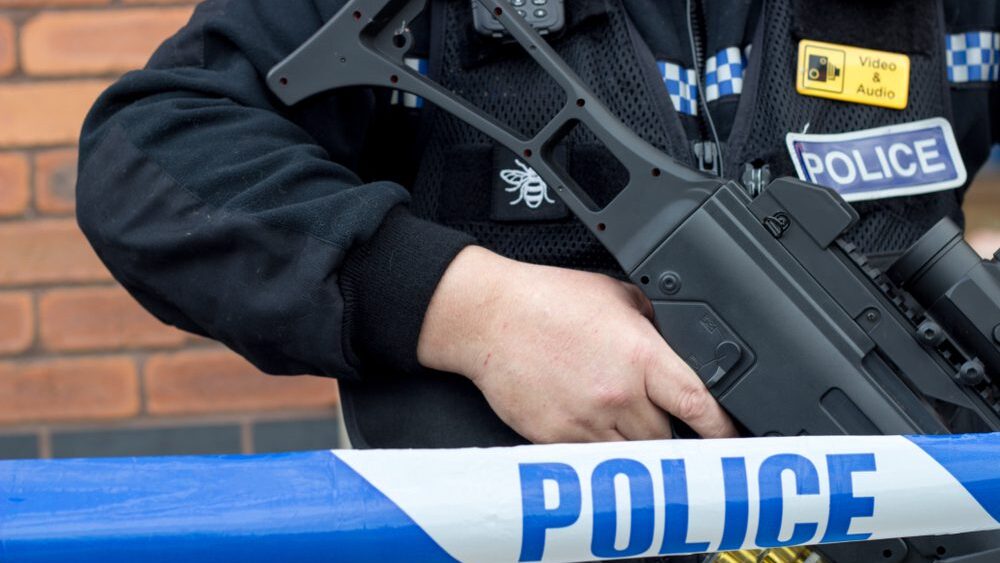
Photo: Juiced Up Media / Shutterstock.com
Britons living outside the major cities are unlikely to see a patrolling police officer during their daily routines, though not due to a lack of crime. Even rarer is the sight of an armed officer, these being restricted to more high-risk areas. The fact that British officers are not routinely armed separates them from most of their European and U.S. counterparts, a fact that few—officers included—wish to change. A row this week over the charging of an armed officer will only have further embedded such doubts.
An officer in London’s Metropolitan Police, who can only be identified as NX121 at this time, has been charged with murder after a 24-year-old expectant father, who was unarmed, was last year killed by a single bullet fired by a police marksman.
Home Secretary Suella Braverman responded that armed officers “have to make split-second decisions under extraordinary pressures” and so “they mustn’t fear ending up in the dock for carrying out their duties.” It is partly because these officials hold the power to, in a split second, act as judge, jury, and executioner that there is opposition to their numbers being extended.
They mustn’t fear ending up in the dock for carrying out their duties.
— Suella Braverman MP (@SuellaBraverman) September 24, 2023
Officers risking their lives to keep us safe have my full backing & I will do everything in my power to support them. 2/3
There are more than 2,500 armed officers in the Met. Frustrated and perhaps concerned at seeing one of their colleagues charged with murder, around 100 of these officers turned in permits allowing them to carry weapons on Monday morning, leading to the Ministry of Defence offering its support. Within a matter of hours, the Army was told it could step down because enough Met officers had returned to their posts.
But the affair has left some scarring; armed officers are, the Met said, “worried about how the decision [to charge] impacts on them, on their colleagues and on their families.”
They are concerned that it signals a shift in the way the decisions they take in the most challenging circumstances will be judged. A number of officers have taken the decision to step back from armed duties while they consider their position.
Braverman has acted on these concerns by launching a review into armed policing guidelines. In his first comments on the matter, Prime Minister Rishi Sunak agreed that police need more “clarity” on their legal powers. He said:
Our firearms officers do an incredibly difficult job. They are making life or death decisions in a split second to keep us safe and they deserve our gratitude for their bravery. Now it is important when they are using these legal powers that they do so with clarity and they have certainty about what they are doing, especially given the lethality they are using.
Whether further assurances are granted following a review or not, the national mood around the arming of police officers can only have further soured following this episode.
